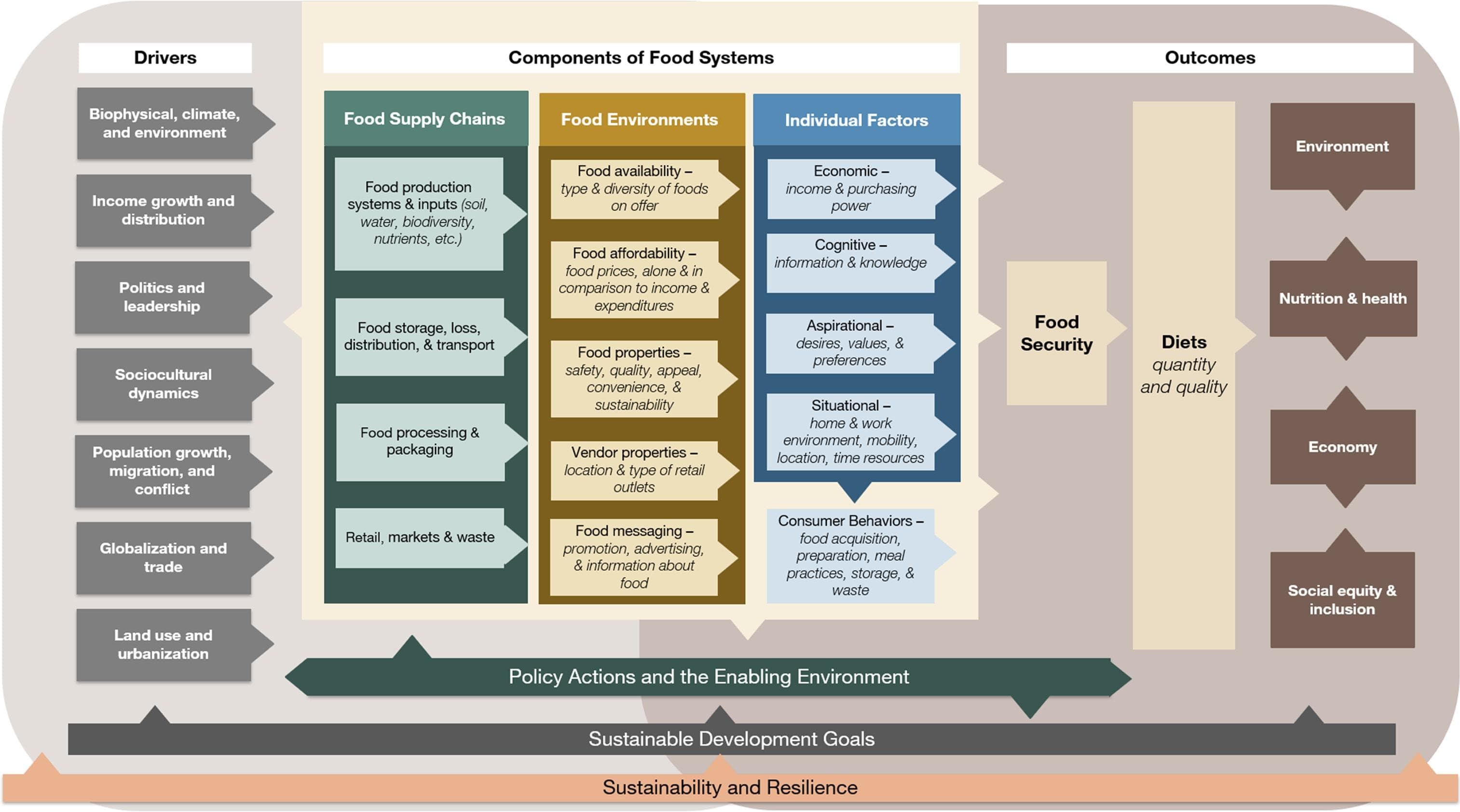The Food Systems Countdown Initiative (FSCI) is producing annual publications to measure, assess, and track the performance of global food systems toward 2030 and the conclusion of the Sustainable Development Goals.
About the Food Systems Countdown Initiative
Food Systems Face Great Challenges
Food systems today are under great stress. The last 100 years saw an incredible increase in the productivity of food production, increasing the diversity and quality of foods available to many consumers worldwide and delivering us into a world where there is enough food for all people on Earth. Yet those great gains have not been evenly shared, still many go hungry, and even more cannot afford a healthy diet. Undernutrition persists (including insufficient calories and micronutrients), while at the same time new forms of malnutrition have emerged as the foods we eat are linked to six of the top ten risk factors for disease and death globally. The environment is reaching its limits to support future food production, caused in part by the way we currently produce food. Food systems are responsible for an estimated 30% of greenhouse gas emissions threatening the long-term viability of life on Earth while at the same time being threatened by the impacts of climate change. Continuing on the present path is untenable for current and future generations.
Food System Transformation Presents a Great Opportunity
Food systems connect people and the Earth and offer a clear entry point to address the numerous health, environmental, and socioeconomic challenges of our day. Food system transformation is central to meeting the Sustainable Development Goals (SDGs) by their 2030 deadline as well as to meeting the targets and commitments established in the three Rio Conventions on climate change (UNFCCC), the Convention on Biological Diversity (UNCBD), and the UN Convention to Combat Desertification (UNCCD). Meeting these goals is possible, but requires decisive and deliberate decisions to set countries, companies, and consumers on a more sustainable, healthy, equitable, and resilient path. Choosing those right actions requires rigorous evidence.
Tracking Transformation: The Food Systems Countdown Initiative (FSCI)
The FSCI is working to build a science-based observational system using a food systems framework to track global food systems and their changes to 2030. Deliberately changing complex systems that cut across sectors, jurisdictions, and national borders calls for a comprehensive, ongoing program of scientific measurement and assessment of all aspects of the system and their interactions to guide decision-makers and hold those in power to account for transformation. Food system actors and stakeholders (e.g., civil society, governments, and international organizations) need actionable evidence to make decisions that can bring about food system transformation yet no such mechanism currently exists.

In 2021, the FSCI published an initial architecture proposing how food systems can be comprehensively tracked and assessed to guide decisions and assess change (see Fanzo et al., 2021). Ongoing work is building on that framework to assess the state of food systems (2022), and will assess progress (2023). Going forward the FSCI collaborators will work to deepen the systems analysis to understand the interactions, feedback loops, and distal impacts of changes in one area of food systems on other areas. Our research agenda centers around the evidence gaps exposed by moving from siloed, disciplinary analyses of agriculture, nutrition, health, and the environment to a comprehensive understanding of food systems.
Most FSCI collaborators contribute their time in kind, but core FSCI functions are supported by GAIN’s Nourishing Food Pathways programme which is jointly funded by:

The findings, ideas, and conclusions presented by the FSCI are those of the authors and do not necessarily reflect positions or policies of any of the agencies mentioned above.